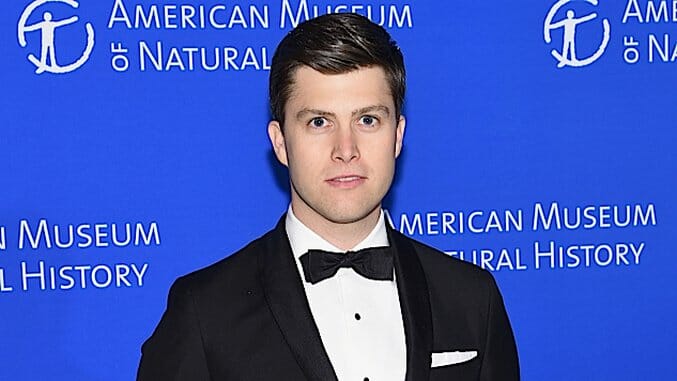Michael Che and Colin Jost Should Not Host “Weekend Update”
Photo by Jamie McCarthy/Getty
Yesterday, two of television’s most visible satirists, Saturday Night Live “Weekend Update” hosts Michael Che and Colin Jost, shit the bed. In a series of tweets addressing rightful uproar over a stupid joke, Jost demonstrated a dangerous apathy toward the lives and dignity of marginalized communities. Meanwhile Che, in an interview with Vulture, said not only that he doesn’t care whether Donald Trump is a racist, but that it’s not his job to care. These positions aren’t just inane; they’re disqualifying. As faux-news anchors on one of television’s most popular comedy shows, it is Che and Jost’s job to call out bullshit—not to normalize it. Clearly their moral barometers are off, and they cannot be trusted with the task that awaits them under the Trump Administration. If they can’t do the job, someone else should.
First, to Jost. Here is the joke in question, from this past Saturday’s show:
This is HILARIOUS! Trans people and their allies have cost our country WAY too much. Glad Uncle @colinjost finally sticks it to them! pic.twitter.com/nyJmq1Gpsl
— Crooked Cole (@ColeEscola) November 21, 2016
The bit is incoherent even in a vacuum. It’s obviously attempting to critique the Clinton campaign, as many have, for failing to excite the white working blah blah blah. But it punches up by punching down, blaming Clinton’s loss on the people who will suffer most from Trump’s win. It’s also semantically nonsensical, leaping between setup and punchline from the free market (Tinder) to the government (the Democratic Party), equating business policy with public policy. I suspect the writers assumed their audience already disdains identity politics, so they wouldn’t have to do the work of crafting a sensible joke. In this view, identity politics is already a joke, the same way that Trump’s hair is a joke—all you have to do is point at it and everyone laughs. Ha ha.
So it’s a lazy joke—most jokes are. Maybe we should cut it some slack; maybe it’s actually lazy in the other direction, and its intended target was everyone else blaming identity politics for our current nightmarish circumstance. Sadly, as comforting as it is to hope that people in powerful positions are fundamentally competent, they’re usually not. Over the weekend, Jost defended himself against those calling him out on Twitter, ultimately culminating in this exchange with Ben Hopkins, one half of the band PWR BTTM:
@PWRBTTMBAND so you think 100 percent of Trump voters were hatred and 0 percent had any other rationale?
— Colin Jost (@ColinJost) November 22, 2016
@PWRBTTMBAND in no way am I trying to. I’m on your side a hundred percent. Only trying to learn from this defeat and get stronger.
— Colin Jost (@ColinJost) November 22, 2016
@PWRBTTMBAND It’s politics. A lot of politics is messaging and getting America on board. I want to examine how we failed at that goal.